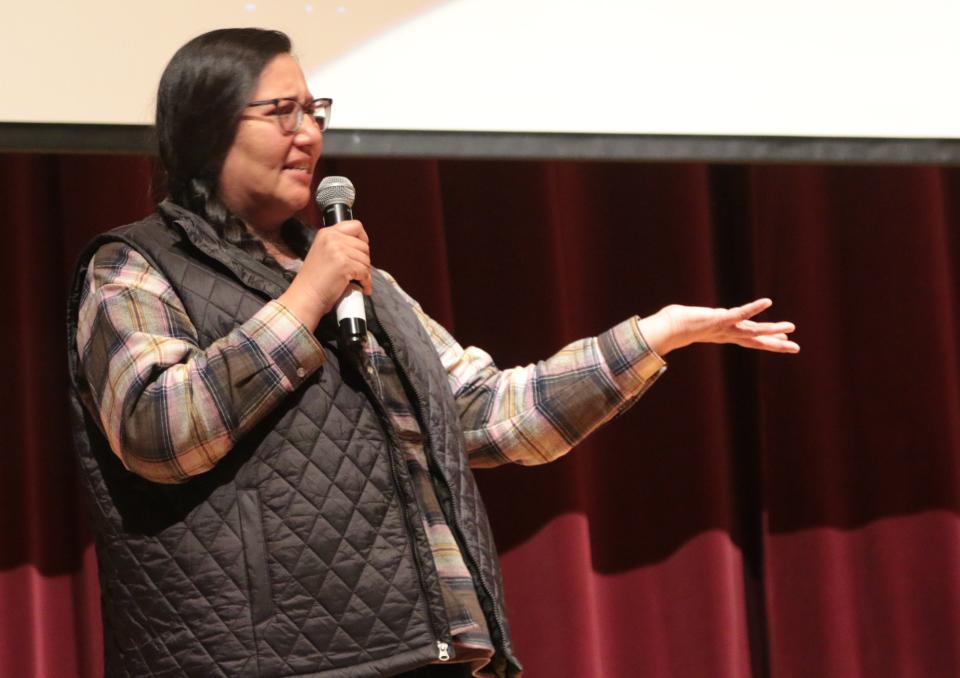'Oyate' film highlights pipeline protest, other Native American issues
- Oops!Something went wrong.Please try again later.
Jennifer Martel started her journey to create a film at the protests surrounding the installation of the Dakota Access Pipeline, but her documentary film covered that topic and more.
It was a protest that put Native American concerns front and center. Their goal was to protect the water in the Missouri River that could potentially be contaminated if a breach were to occur. But, Martel wanted the movie to be about more than just the pipeline protests. She also wanted it to be a film that discusses the topics that are harder to talk about.
"If it makes you uncomfortable that's good," Martel said as she shared a few thoughts Wednesday evening at Central High School prior to the showing of her film "Oyate."

describes the Native communities as a people who live in two worlds with some who pursue successful careers, but also a people with culture and tradition. She also describes a people indigenous to this land who continue to deal with atrocities of the past.
"We're in the 21st Century. We have to wake up. We have to realize we have a time and space," she said.
The film introduces the 2016 Dakota Access Pipeline protests in North Dakota and how tensions escalated with law enforcement. But, although it was an issue that brought a massive group together to take a stand, it wasn't the dominant topic within the film. Throughout the film, Chase Iron Eyes and others talk about the history of broken treaties between the U.S. Government and Native Americans as the land they were initially given progressively got smaller and smaller.
Discussion also turns to the boarding schools that were established to provide an education for Native American children, but ended up being places where harm was done as well. One man recalled daily punishments because he only spoke his native language.
Iron Eyes also highlights the poverty on the reservations like Pine Ridge where there's 75% unemployment and people who are subsisting on an annual income of $3,000 a year.
Above all, the film instills the need to speak out for change.
Following the film, Martel said her goal with the film is to educate.
"Moving forward we all have to educate and be good relatives to one another," she said.
Martel said the film has been featured at different film festivals and there's one conversation between Iron Eyes and his daughter where he talks about whether or not he's earned white privilege, that typically gets a reaction, and she's glad it does. In that conversation Iron Eyes talks about white privilege in the context of becoming a lawyer and learning to speak a certain way, but his daughter countered with the argument that he'll never earn white privilege as a man with brown skin.
As film producer, Martel was presented with the courage award at the Red Nations Film Festival in Los Angeles in November. Oyate will also soon be available for viewing on Amazon Prime as well as Netflix and Hulu.
Martel said she also has plans for another film, with the specific topic yet to be determined, but she hopes to have it completed it in two years.
This article originally appeared on Aberdeen News: 'Oyate' film highlights pipeline protest, other Native American issues

